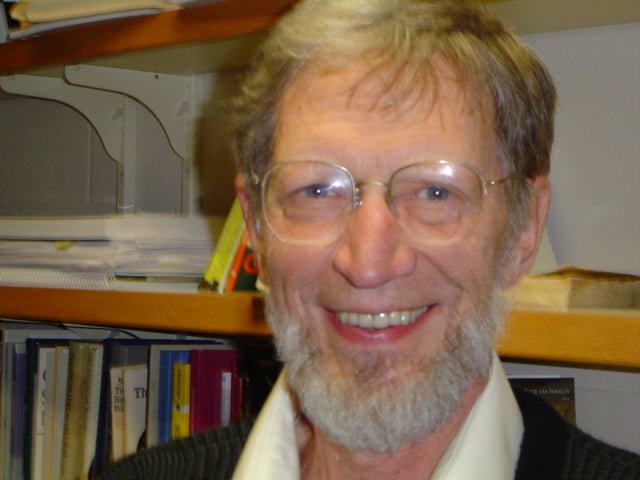Lack of scientific knowledge can leave Christians feeling vulnerable when talking to unbelieving friends about why faith is superior to skepticism. Many college students discover atheism through science classes; students who enter university as Christians have their faith fiercely tested by their studies, and too many give up the fight merely because they assume that a biology professor must be correct about whether God exists. When a little bit of childlike faith meets a lot of studied atheism, fear can take control.
That’s unnecessary. You don’t have to have a degree in science to have something to say to those with scientific objections to faith. Here are four simple responses to those who say that science has either disproved God or has made belief in God unnecessary:
1) We cannot know from science if science itself is the best source of knowledge.
There are two possibilities when it comes to human knowledge through science. The first possibility is that everything that is real is actually reducible to scientific principles. Everything–from the universe, to human emotion, to spiritual experiences–is explainable through scientific research. The other option is simple: Not all existence can be explained through science.
Here’s why this question matters. If the first option is true, then logically, science absolutely is the supreme mode of knowledge, and everything we believe about anything must be in submission to it. The problem though is that whether or not all of reality is utlimately explainable through scientific concepts is not itself a scientifically provable theory. It is a philosophical premise, not a scientific conclusion. The only way to definitively prove that science explains everything would be to have exhaustive knowledge of all reality, and then be able to explain (using only scientific data) what all reality is and what it means. Such a feat is impossible. Therefore, the belief that science is the best source of knowledge must be accepted on faith, for it cannot be verified through testing.
2) Scientific consensus can and frequently does change. This limits its epistemological authority.
The progressive nature of scientific inquiry is essential to its value. Done rightly, science can correct its own errors. But this presupposes that science can make errors in the first place. And if that’s true, then the question is: How do we know what could be a current error in scientific consensus, and what do we know is absolutely true?
This is a very important question to ask religious skeptics who appeal to science. A likely response is that science may be wrong on almost everything it says, but it almost certainly isn’t wrong about what it doesn’t say; ie, if science hasn’t revealed God by now, it’s not rational to think it will. But this objection misses the point. One does not wait on science to exhaustively explain something before believing it. If that were so then 99% of human beings on the planet would not believe in the most basic realities of existence, or would be irrational in believing without having exhaustive scientific knowledge. If current scientific consensus points away from the existence of God (a highly disputable point, by the way), then who is to say that consensus cannot change? If it can, then science’s intellectual authority is limited, and the expectation that it will continue to oppose religious belief is more a matter of faith.
3) Only supernatural theism provides a rational justification of scientific work.
The wording of this point is very important. If we left out the word “rational,” then the statement would actually be false and quite easy to shoot down. You don’t need supernatural theism to be curious, or to want to explore the natural world. But you do need supernatural theism to have a rational justification of science. What does the word rational mean there? It means that scientific inquiry done on the assumption that there is no higher intelligence than evolved human intelligence is making a value judgment that it has no right to make.
Why is knowledge better than ignorance? The atheist would respond that ignorance has less survival value than truth; after all, if you believe wrong things or do not know enough about your environment, you’re less likely to survive and flourish. But this explanation only applies to a very small amount of scientific knowledge. There is little survival value in knowing, for example, the complicated workings of time–space theory, or the genus of certain insects, or the distance of Jupiter from Mars. All of these facts are pursued by scientists as being intrinsically valuable, yet they offer very little information that can help guarantee a species’ continued existence on the planet.
The real explanation is that scientists pursue these facts because there is intrinsic value in knowing what is true about the world, regardless of how much help it gives us. Human beings believe that knowing is better than ignorance because they believe that truth is better than falsity, and light is better than darkness. But where does such a conclusion come from? It does not come from scientific principles. Science itself offers no self-evident account for why it should be pursued. You cannot study science hard enough to understand why you should study science at all. To study science presupposes a valuing of truth that must be experienced outside of scientific study. It is only rational to pursue scientific knowledge that doesn’t offer immediate survival value if there is some external, transcendent value in knowing truth. Theism offers an explanation for why knowing truth is valuable. Scientific atheism does not.
4) Only supernatural theism gives us assurance that real scientific knowledge is possible.
Philosopher Alvin Plantinga is famous for articulating what he calls the “evolutionary argument against naturalism.” The argument is

complicated in detail but simple in premise. Plantinga begins by putting two facts alongside each other that nearly all atheists agree on. First, the theory of evolution is true, and humans have descended from lower life forms over time. Secondly, humans are rational beings in a higher degree and superior way to lesser evolved creatures. Plantinga then points our attention towards a tension between these two facts. If human beings are a more evolved species of primate, then our cognitive faculties (ie, the parts of our body and mind that allow us to be rational creatures) have evolved out of lesser cognitive faculties. But, Plantinga says, if God does not exist, then the only factors that affected human evolution are time and chance. Based on time and chance alone, why should we be confident that our rational minds–which are merely the sum of lesser evolved minds plus time and chance–are actually rational at all? What basis do we have to believe our own conclusions? How do we know we are actually capable of knowing truth more than a primate? If the only players in our existence are lesser creatures, time, and chance, how do we know we are even highly evolved at all?
This astute observation was echoed by Thomas Nagel in his recent book Mind and Cosmos. Nagel, an agnostic philosopher from New York University, argues that human comprehension of the universe cannot be explained merely by atheistic evolutionary processes. It makes no sense to assume that humans can really make sense of their world on a conceptual level if human consciousness arose out of the very world it responds to. Nagel agrees with Plantinga that atheistic naturalism cannot explain why human beings can be rational creatures and do rational things that should be trusted.
Scientific knowledge is only possible if things unprovable by science are actually true. If Carl Sagan is correct and the material universe is all there was, is, and ever will be, then science itself is nothing more than a shot in the dark. If, however, human beings are the products of an infinitely greater Mind, then we have justification for believing that true and false are realities and not merely the shadow puppets of our ancestors.












